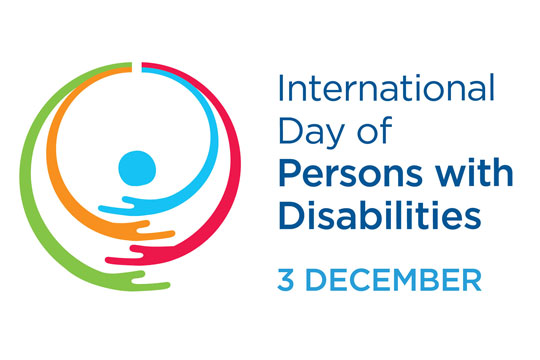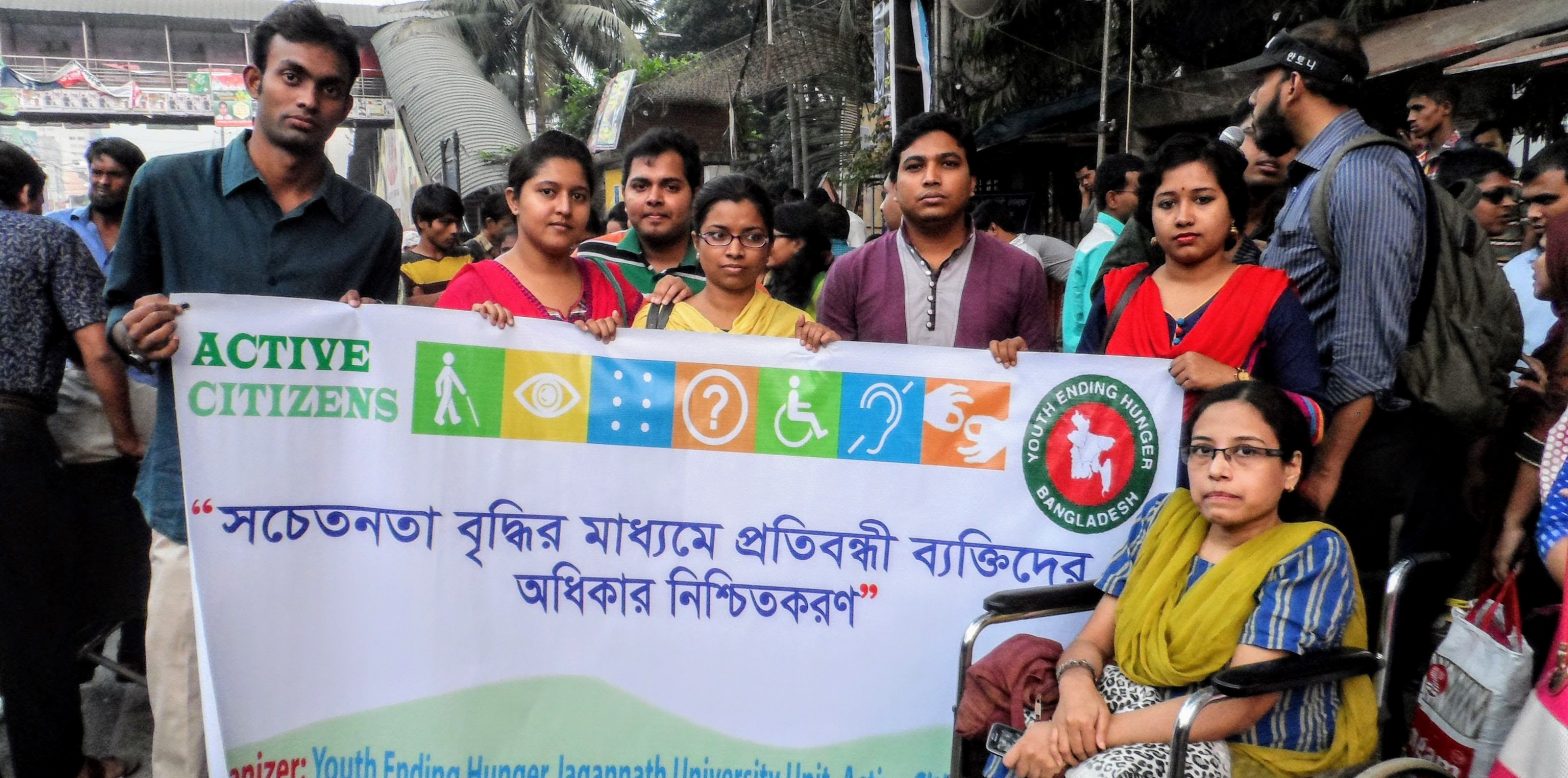Ninth in a series for 16 Days of Activism Against Gender-based Violence, by John Coonrod, PhD – Updated 2022. Featured Photo: The Hunger Project-Bangladesh
December 3
International Day of Persons with Disabilities (IDPD) 2022
31 October 2022
The theme this year is “Transformative solutions for inclusive development: the role of innovation in fuelling an accessible and equitable world“.
The annual observance of the International Day of Persons with Disabilities (IDPD) on 3 December was proclaimed in 1992 by the United Nations General Assembly resolution 47/3. The observance of the Day aims to promote an understanding of disability issues and mobilize support for the dignity, rights and well-being of persons with disabilities.
The 2022 global observance to commemorate the International Day of Persons with Disabilities will be around the overarching theme of innovation and transformative solutions for inclusive development, covering in three different interactive dialogues the following thematic topics:
- Innovation for disability inclusive development in employment (SDG8): this dialogue will discuss the linkages between employment, knowledge and skills required to access employment in an innovative, rapidly changing technological landscape to all and how assistive technologies can increase accessibility to employment and be mainstreamed in the workplace.
- Innovation for disability inclusive development in reducing inequality (SDG10): this dialogue will discuss innovations, practical tools and good practices to reduce inequalities in both public and private sectors, which are disability inclusive and interested in promoting diversity in the workplace.
- Innovation for disability inclusive development: sport as an exemplar case: a sector where all of these aspects coalesce; sport as a good practice example and a site of innovation, employment and equity.

The increased danger to disabled persons is especially true for gender-based violence.
According to the Minnesota website DisabilityJustice.org, “People with disabilities are sexually assaulted at nearly three times the rate of people without disabilities.” The site reports that 83% of women with disabilities will be sexually assaulted in their lives, and just 3% of those cases will be reported. Half of these women have been assaulted more than 10 times. 50% of girls who are deaf have been sexually abused compared to 25% of girls who are hearing; 54% of boys who are deaf have been sexually abused in comparison to 10% of boys who are hearing.
At the beginning of 2018, NPR news began reporting on this “sexual assault epidemic no one talks about,” focusing on individuals with intellectual disabilities – where assault rates occur at 7 times the rate they do against people without disabilities – 12 times the rate for women.
Independence could prove crucial for halting sexual abuse. NPR found that the predators attacking people with disabilities were often their caregivers. Most caregivers in institutions are loving people, but for someone who is a predator, the situation is ideal – with individuals under their care totally dependent.
The Movement for Community-led Development is made up of groups working to empower all people to be authors of their own development – including those living with disabilities. Several of its members have received the Disability Inclusion Award from InterAction, which is the association of International relief and development NGOs based in the US. For example:
- Mercy Corps addresses the special needs of the 10% of people with disabilities among refugees crossing from Syria into Jordan. Here is a heartwarming story of their success in enabling a 15-year-old girl with severe physical disabilities to return to school.
- World Vision has published this guide on Best Practices in Disability Inclusion. For example, they recognize that the ability to provide wheelchairs is only part of the solution for those who need them. “It takes community engagement to not only support service provision but also ensure inclusive societies and environments.” They have also used the Citizen Voice and Action social accountability tool to support people with disabilities in six countries to demand appropriate services.
Other Movement members have teamed up with organizations with special technical skills in the inclusion of people with disabilities. For example, CBM International works with The Hunger Project, Save the Children and others applying its Community-based Rehabilitation approach to disability inclusive community development.
While the situation of abuse of people with disabilities is heartbreaking, addressing it in the era of the SDGs is gaining more and more international focus. To learn more, see:
- The 2006 UN Convention on the Rights of Persons with Disabilities signed by 161 countries, and overseen by an international Committee on the Rights of Persons with Disabilities with 18 expert members.
- The 2012 Lancet review on the Prevalence and risk of violence against adults with disabilities.
- World Health Organization resource page: Violence against adults and children with disabilities.


